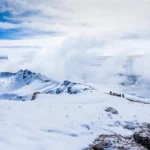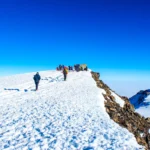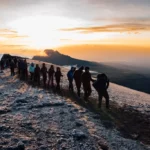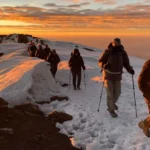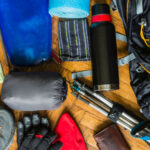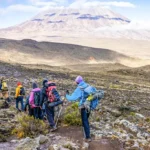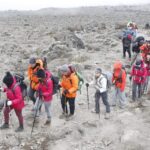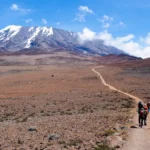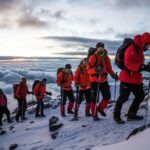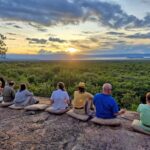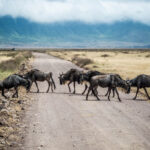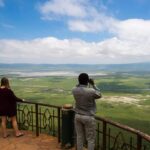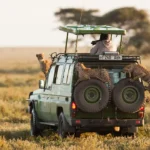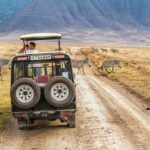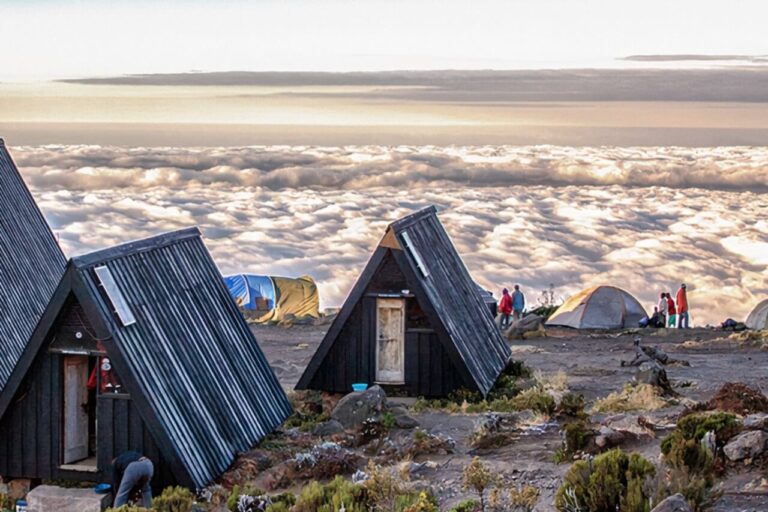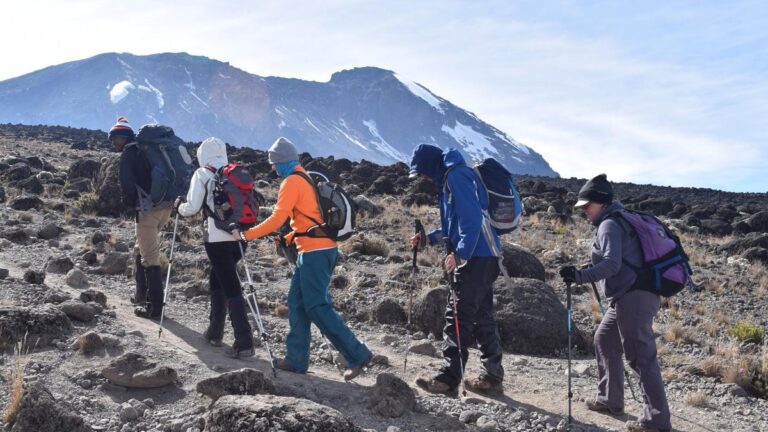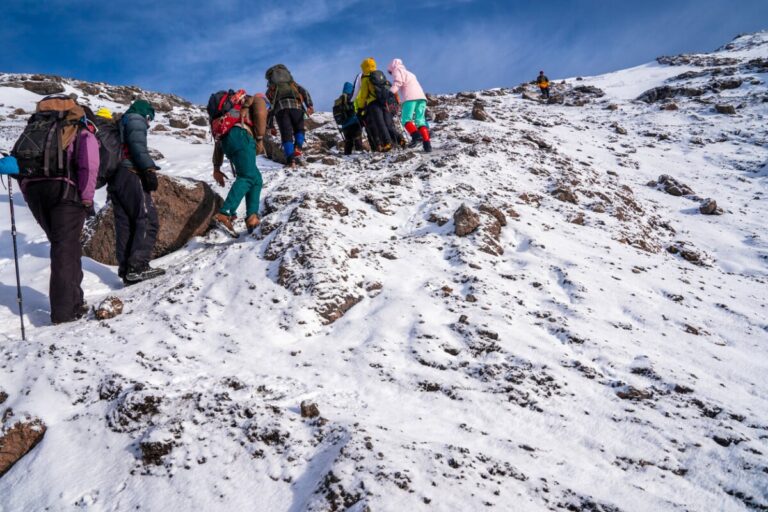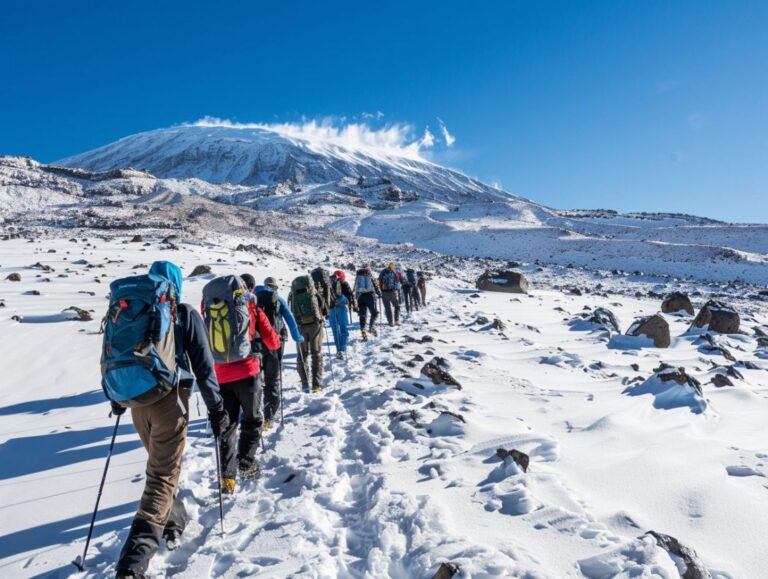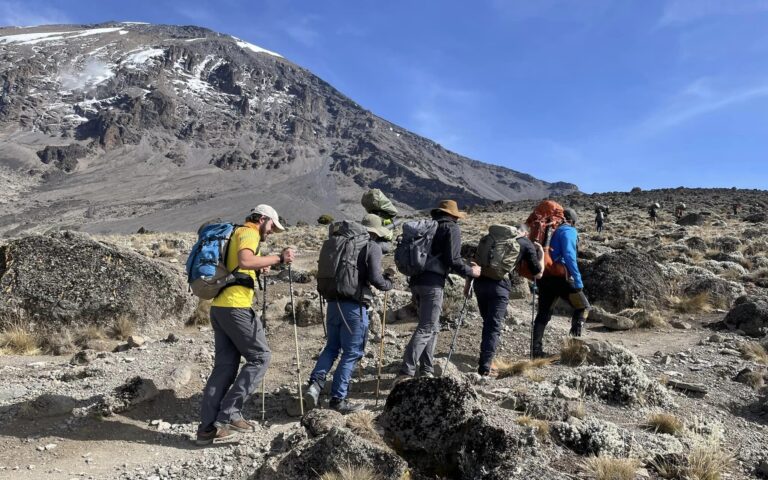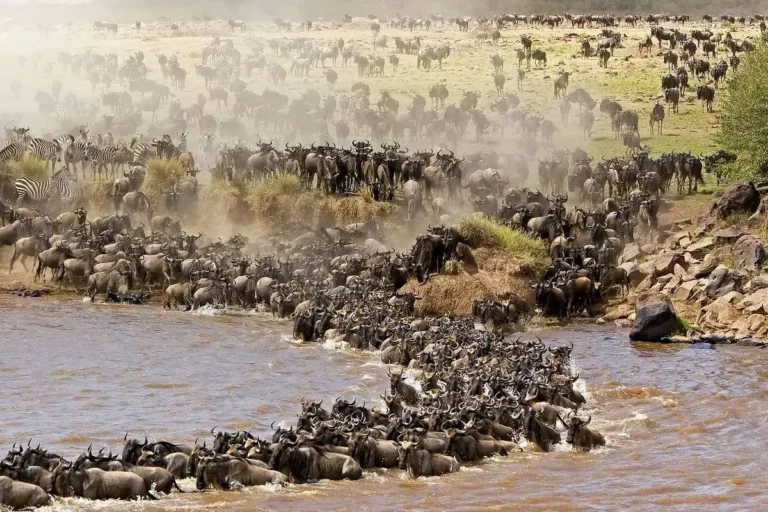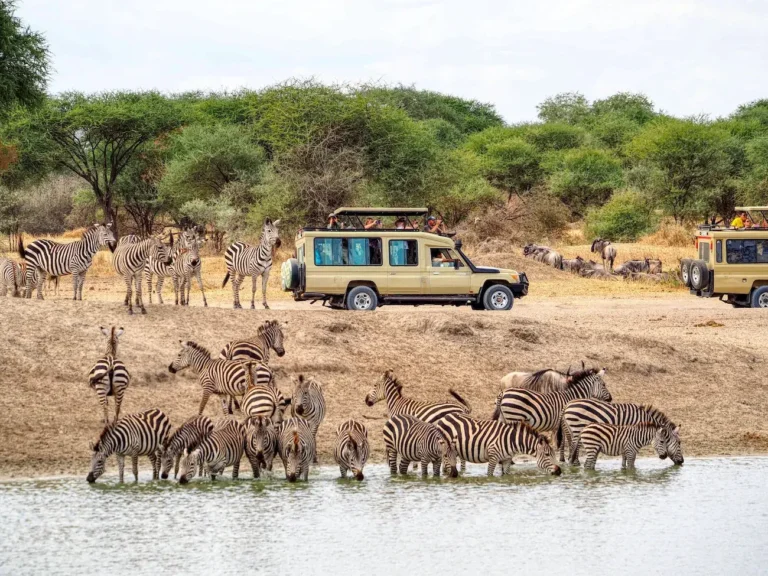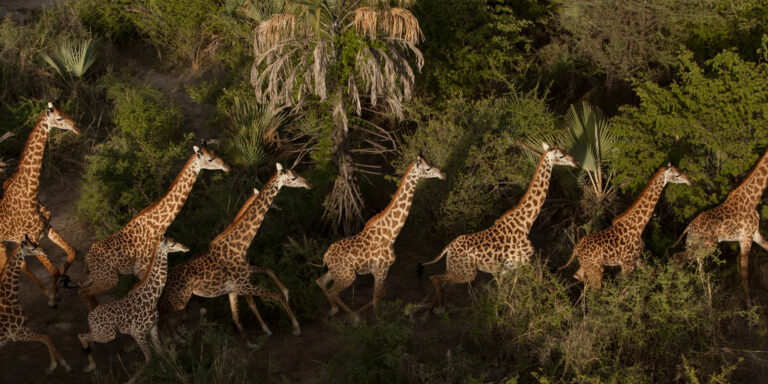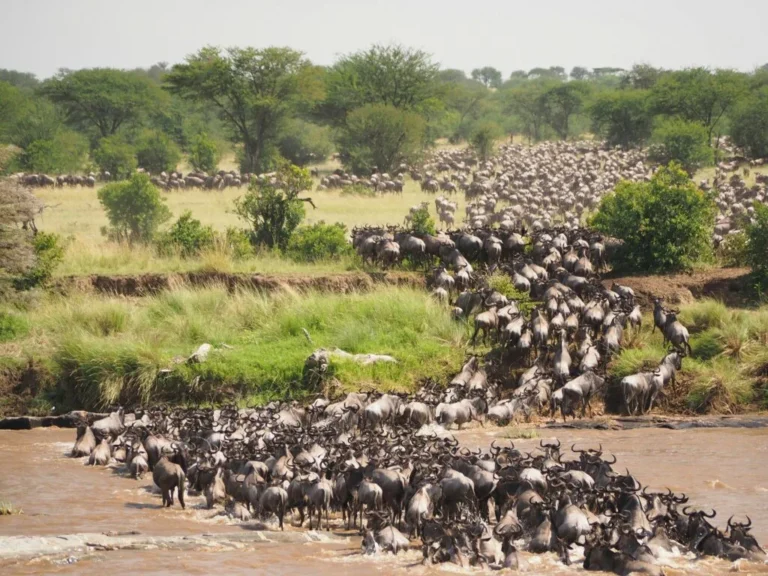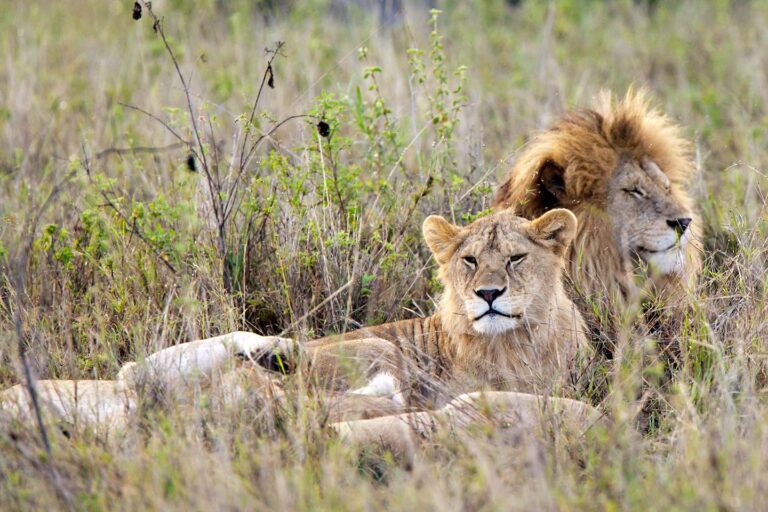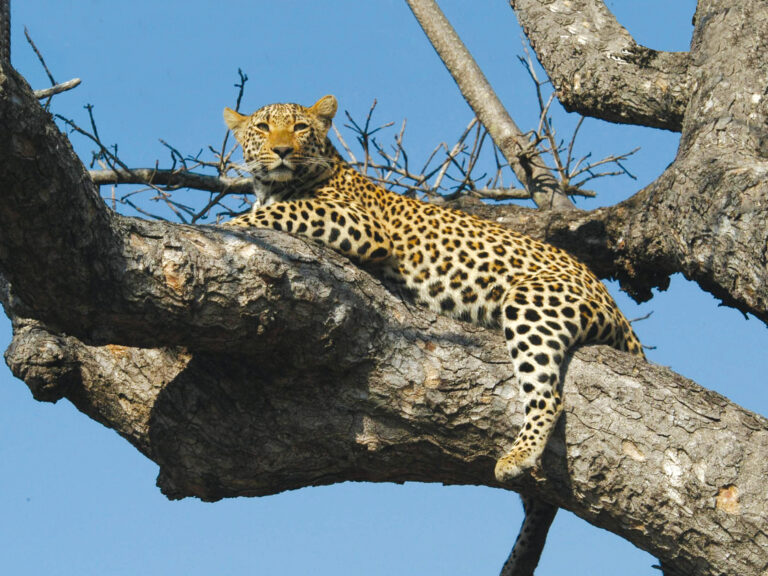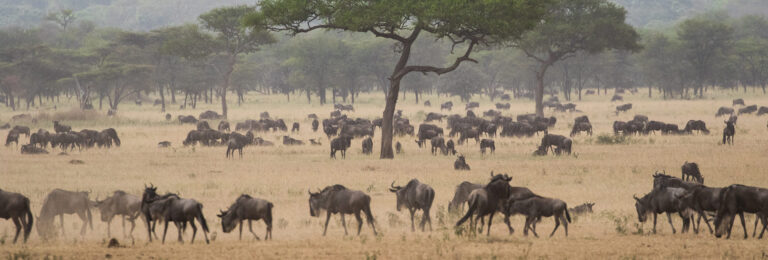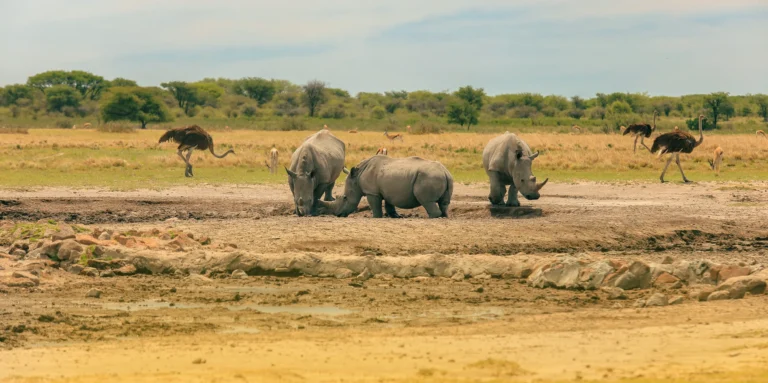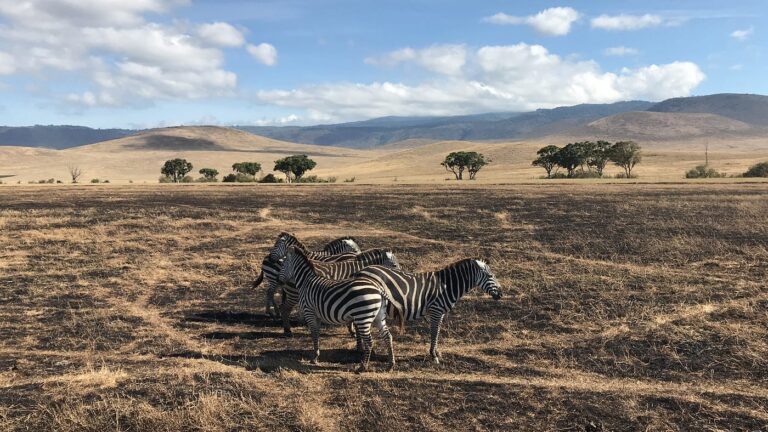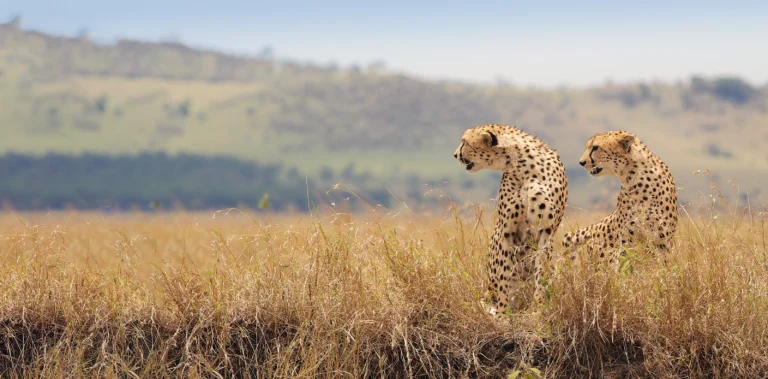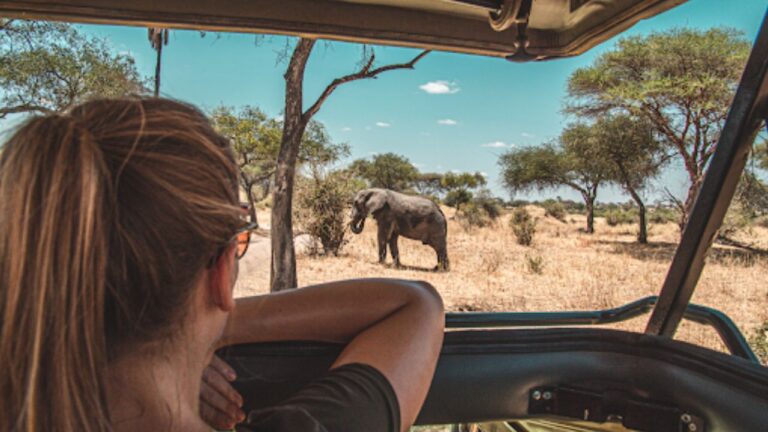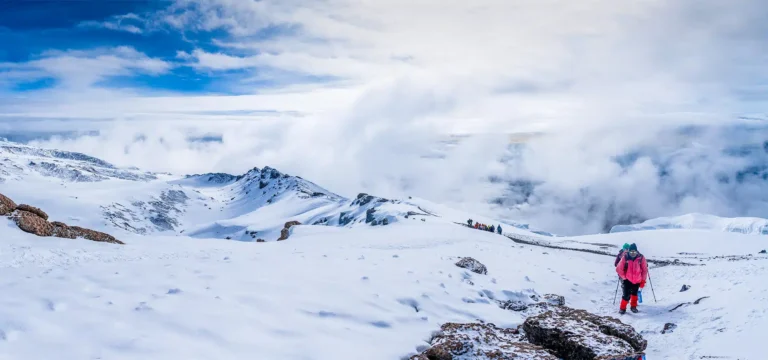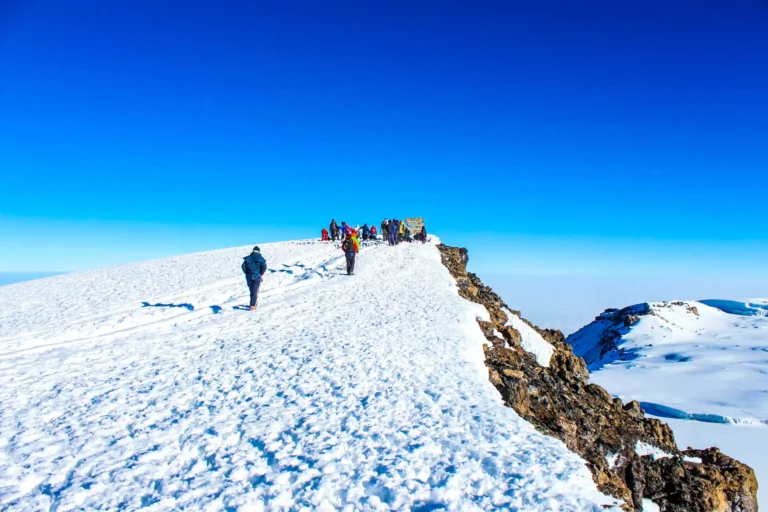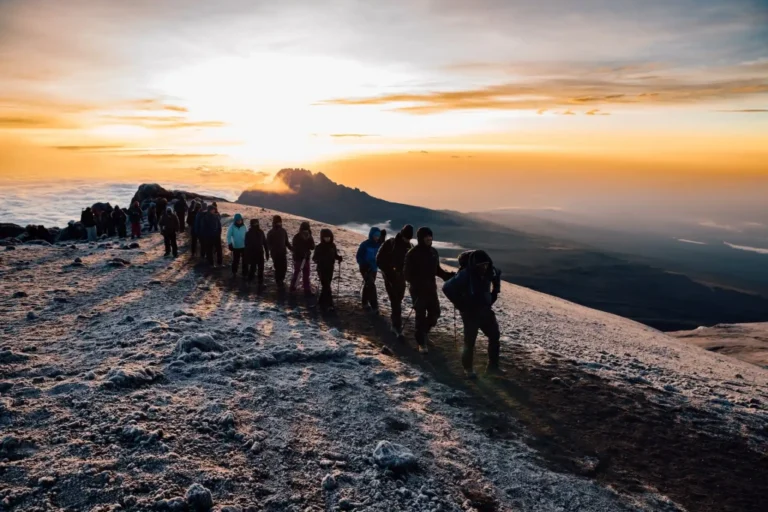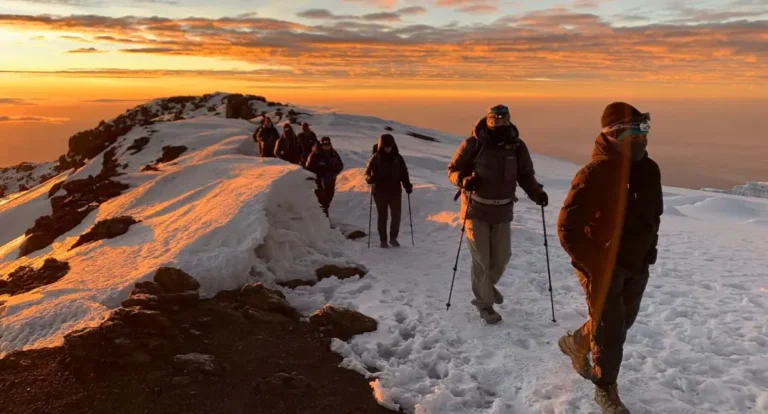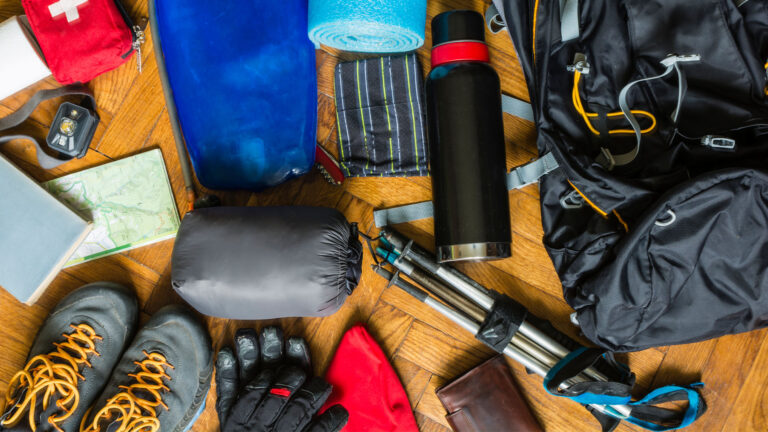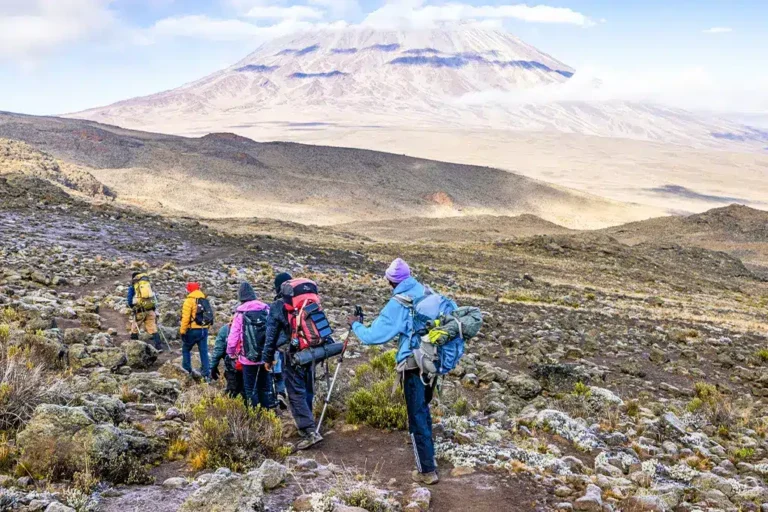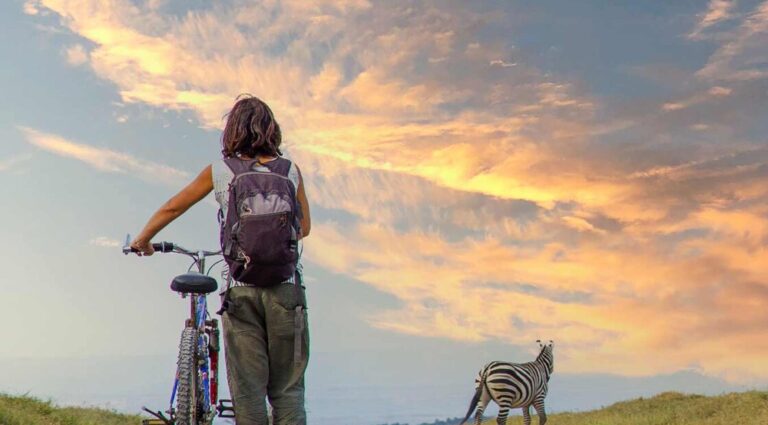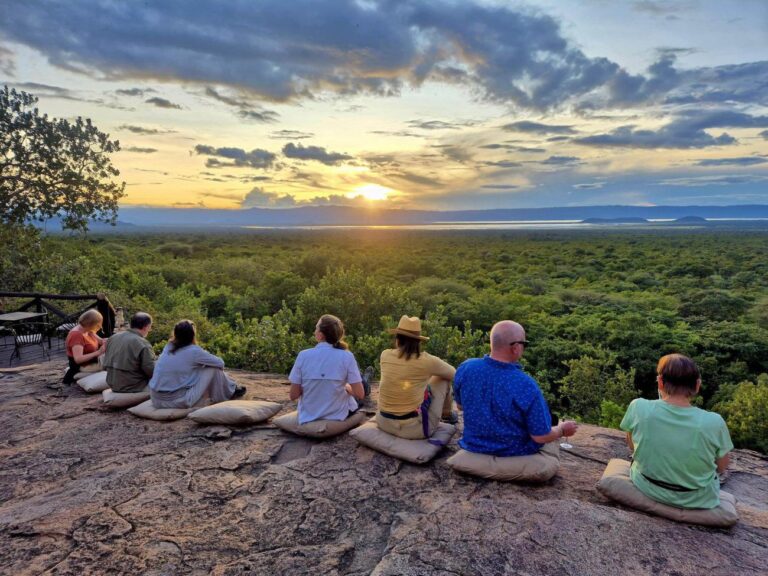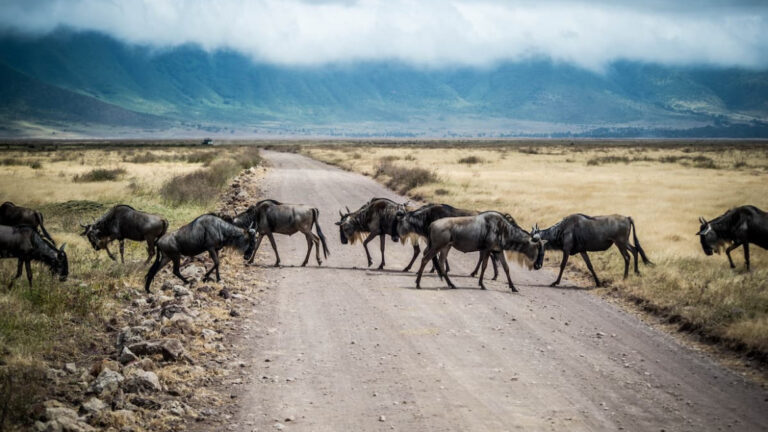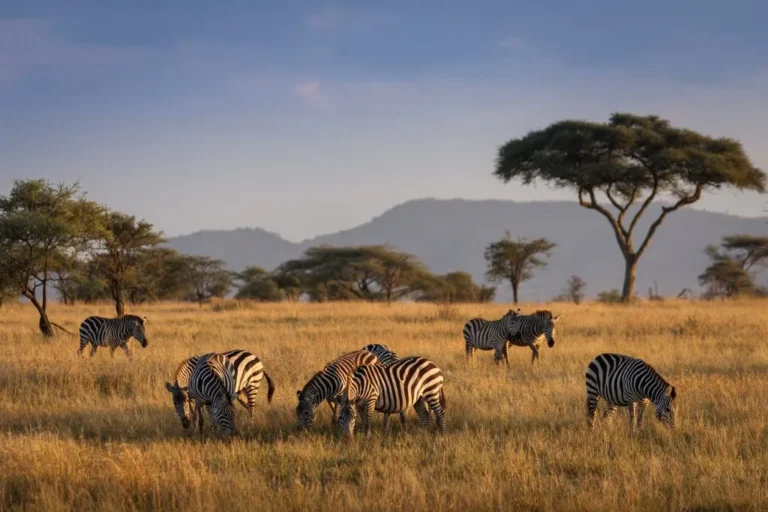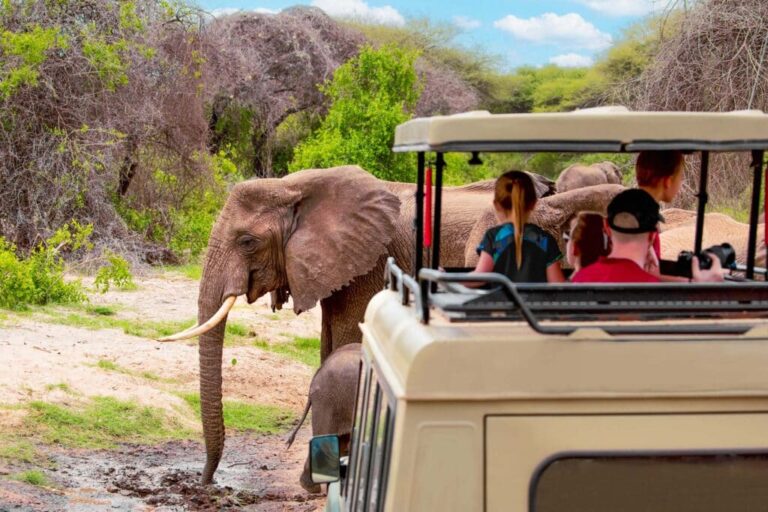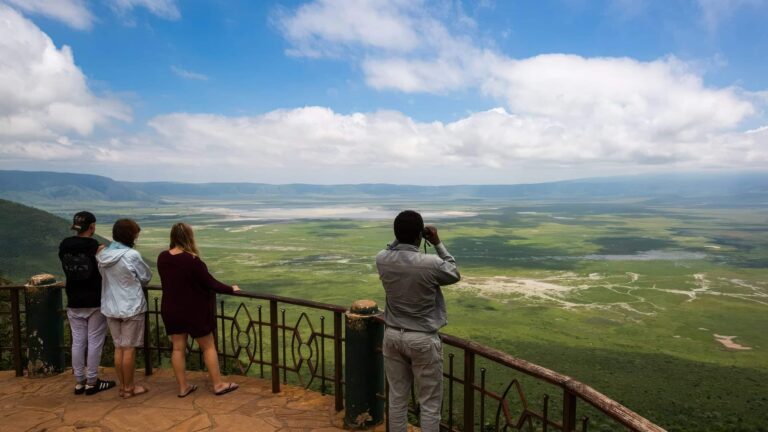Le montagne della Tanzania, dal Kilimanjaro al Monte Meru, sono tra le destinazioni di arrampicata più spettacolari al mondo. Ma, per quanto emozionanti siano questi trekking, le alte altitudini presentano sfide uniche per gli scalatori. Comprendere altitudine, acclimatazione e precauzioni per la salute è fondamentale per vivere un’esperienza sicura e piacevole.
Il mal di montagna, o Acute Mountain Sickness (AMS), si verifica quando il corpo fatica ad adattarsi ai livelli più bassi di ossigeno ad altitudini elevate. I sintomi includono mal di testa, nausea, vertigini e affaticamento. Pur essendo spesso lievi, l’AMS può evolvere in condizioni più gravi come High Altitude Pulmonary Edema (HAPE) o High Altitude Cerebral Edema (HACE), che richiedono assistenza medica immediata.
Una corretta acclimatazione è fondamentale. Salire gradualmente, fare giornate di riposo e seguire il principio “climb high, sleep low” permettono al corpo di adattarsi all’aria più rarefatta. Per il Kilimanjaro, percorsi più lunghi come Lemosho o Machame aumentano le possibilità di successo in vetta e riducono il rischio di mal di montagna, offrendo giorni extra per l’acclimatazione.
L’idratazione è fondamentale. L’ambiente in alta quota provoca disidratazione più rapida, quindi bere molta acqua durante il trekking aiuta a mantenere energia e favorisce l’acclimatazione. Evita alcol o caffeina eccessivi, poiché possono peggiorare la disidratazione e gli effetti dell’altitudine.
Anche la nutrizione gioca un ruolo importante. Consumare pasti equilibrati con carboidrati, proteine e vitamine essenziali fornisce energia e supporta l’adattamento del corpo all’altitudine. Molti pacchetti trekking includono pasti progettati appositamente per l’arrampicata in alta quota.
Gestire il ritmo è un altro fattore vitale. È naturale voler correre verso la vetta, ma un passo lento e costante permette al corpo di adattarsi. Ascoltare i propri segnali e comunicare eventuali sintomi alle guide può prevenire rischi per la salute più seri.
La preparazione fisica prima della scalata è essenziale. Fitness cardiovascolare, allenamento della forza e esperienza di trekking precedente migliorano resistenza e capacità di affrontare lo stress dell’altitudine. Questa preparazione riduce l’affaticamento e migliora l’esperienza complessiva.
Si consigliano anche precauzioni mediche. Porta con te un kit di primo soccorso di base, compresi farmaci per mal di testa, nausea o mal di montagna, se prescritti dal medico. Informa le guide di eventuali condizioni preesistenti affinché possano monitorare la tua salute attentamente.
La preparazione mentale è altrettanto importante. La combinazione di sforzo fisico, altitudine e condizioni meteorologiche variabili può essere impegnativa. Mantenere positività, concentrazione e pazienza durante il progresso graduale aiuta a superare lo stress fisico e psicologico della scalata.
Rispettando i limiti dell’altitudine, gestendo il ritmo e seguendo le linee guida sanitarie, gli scalatori possono affrontare in sicurezza le alte vette della Tanzania. La ricompensa è un’esperienza indimenticabile: viste mozzafiato dalla vetta, paesaggi incontaminati e un profondo senso di realizzazione che solo il trekking in alta quota può offrire.

